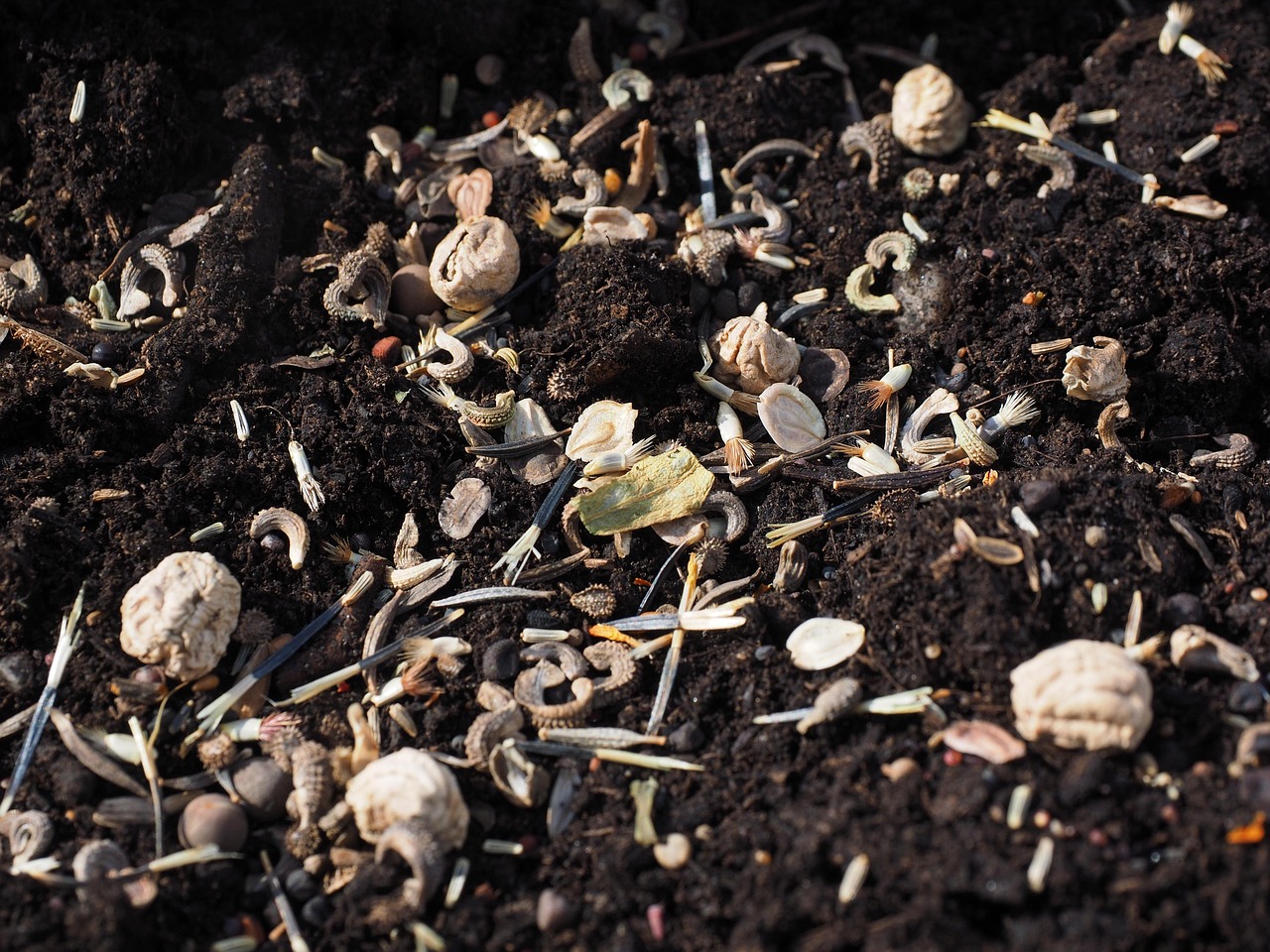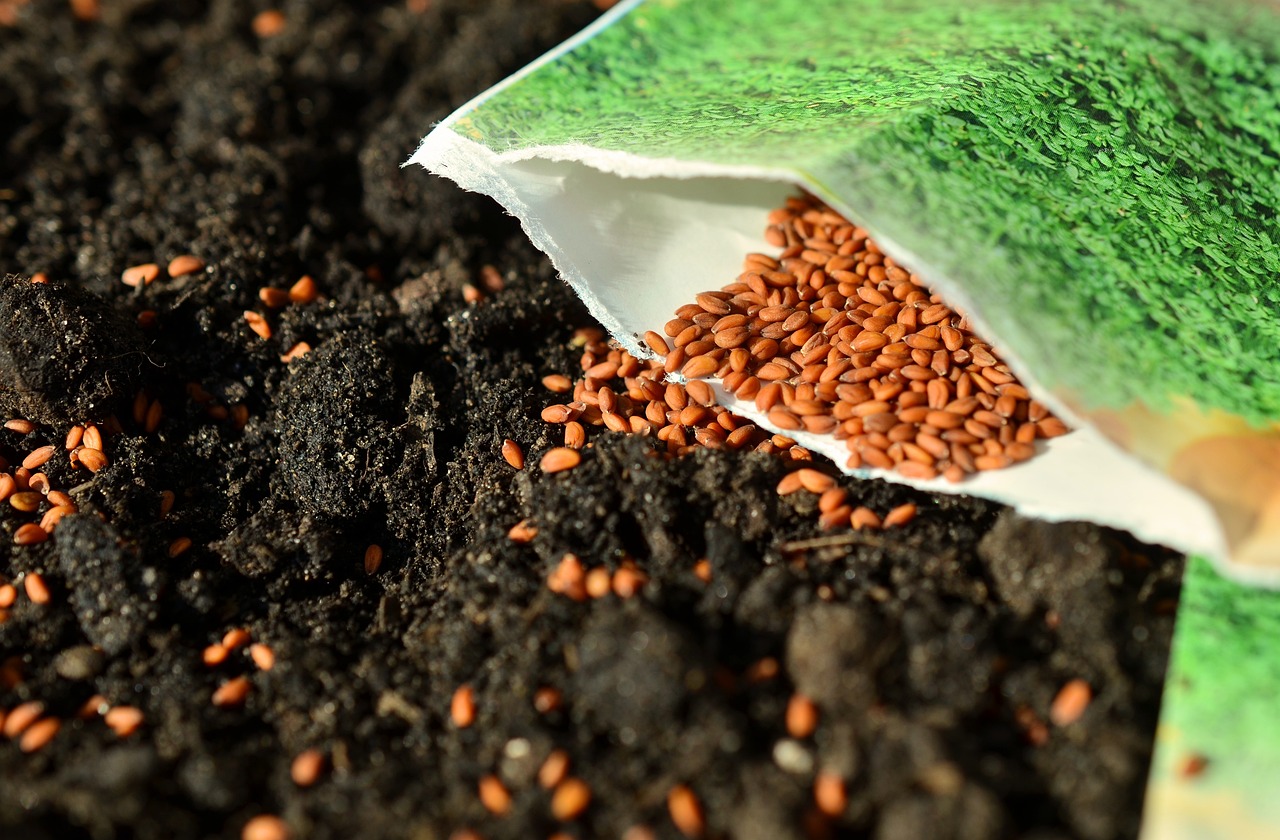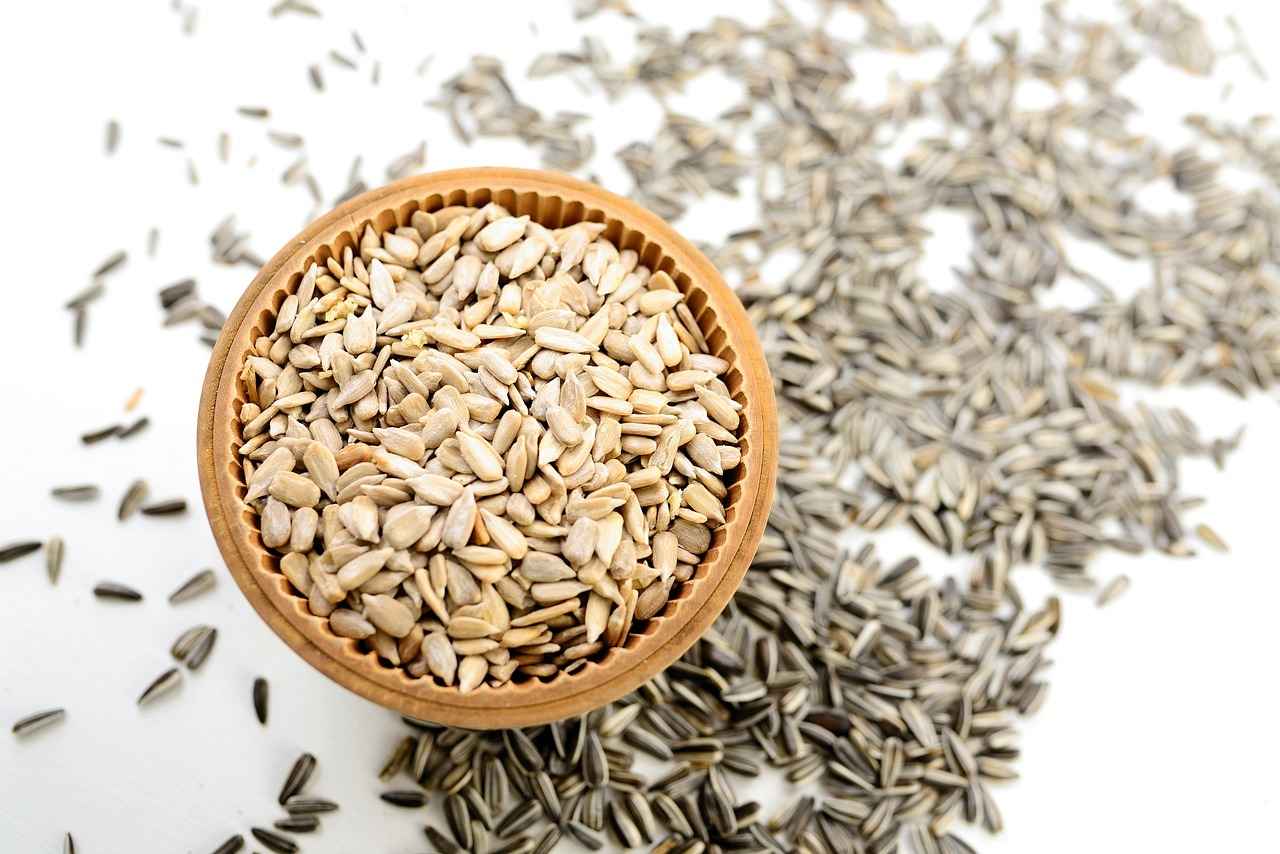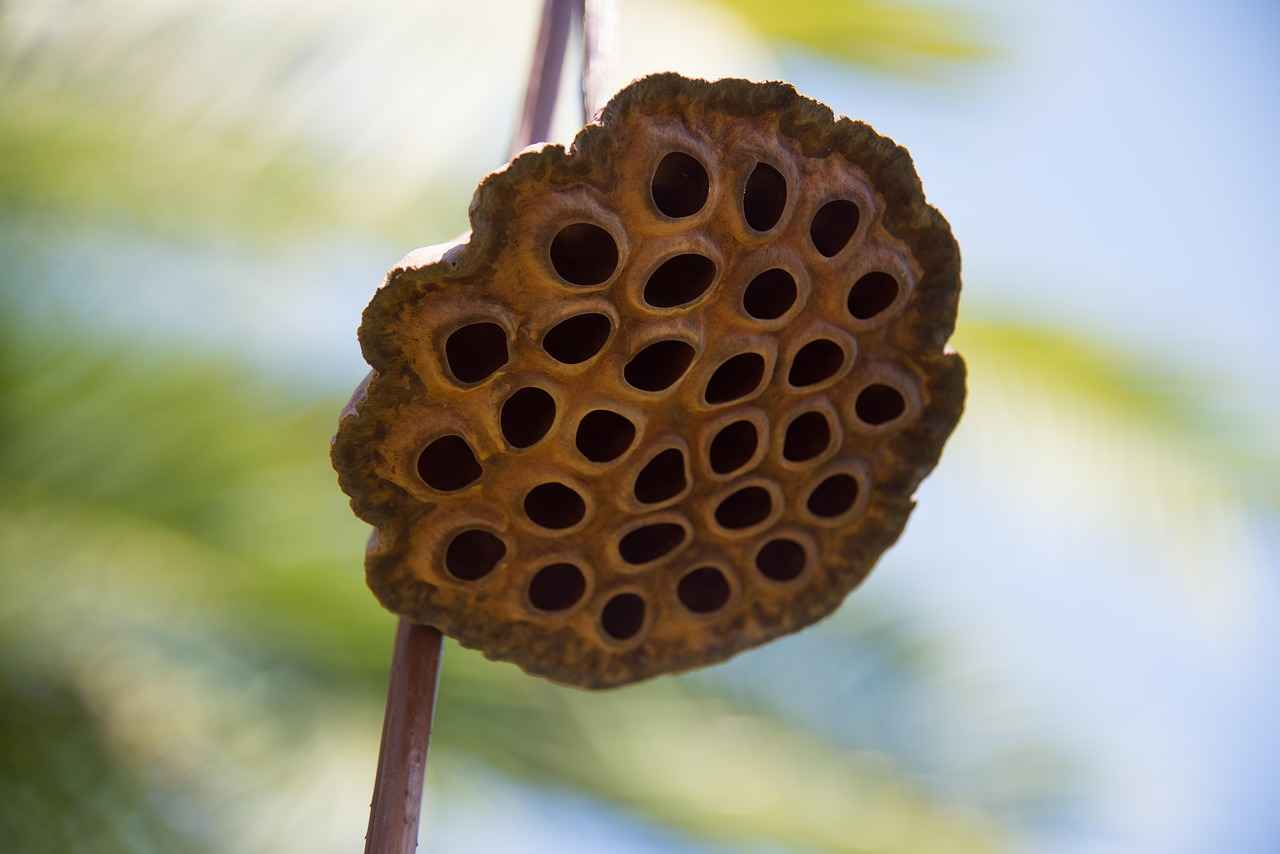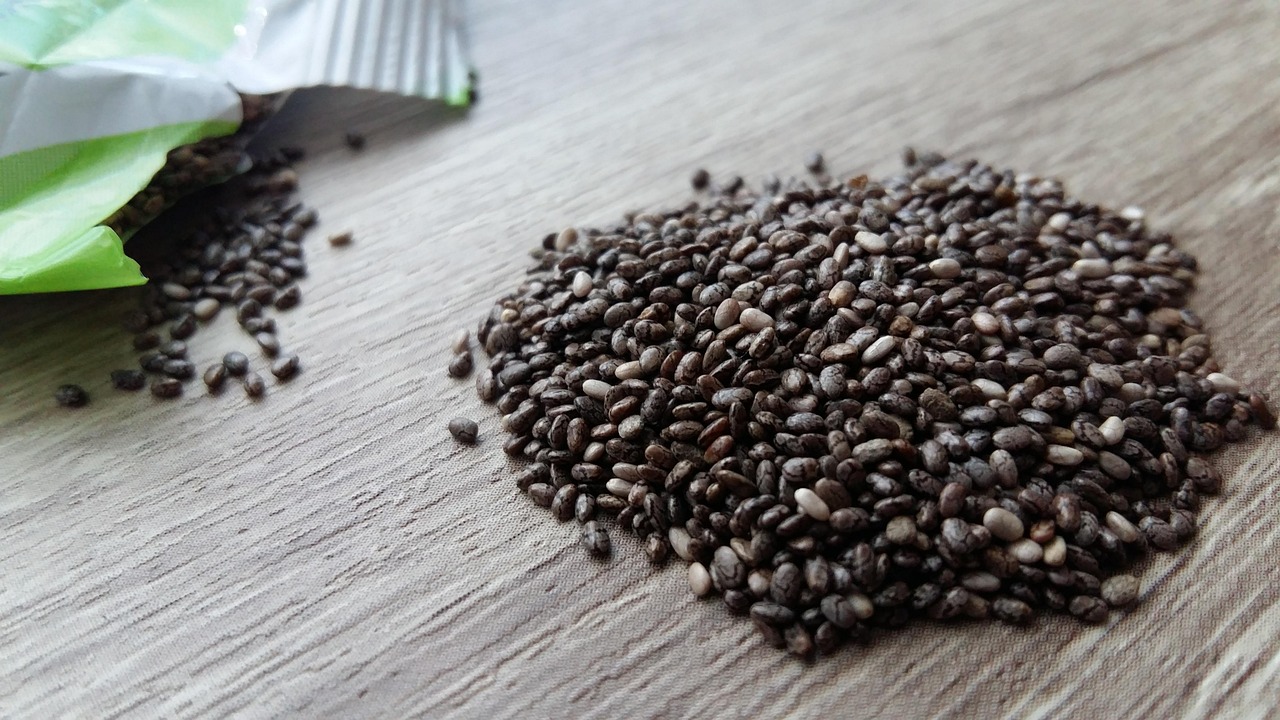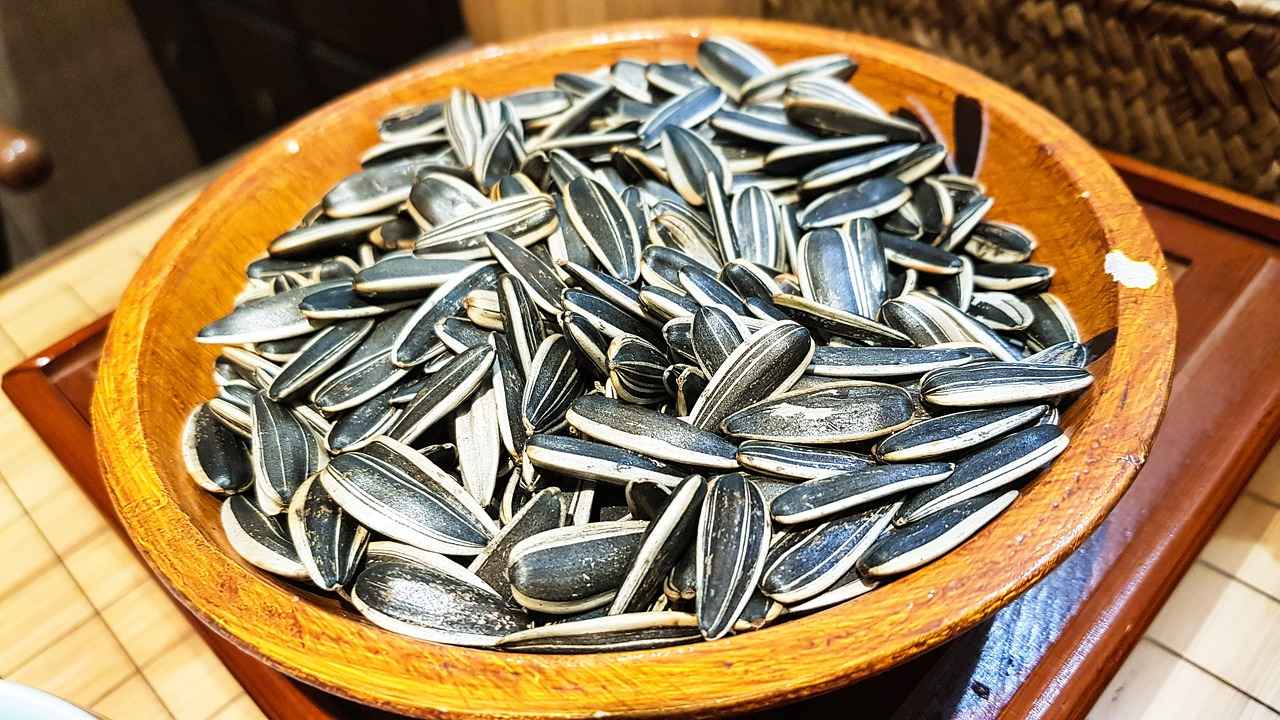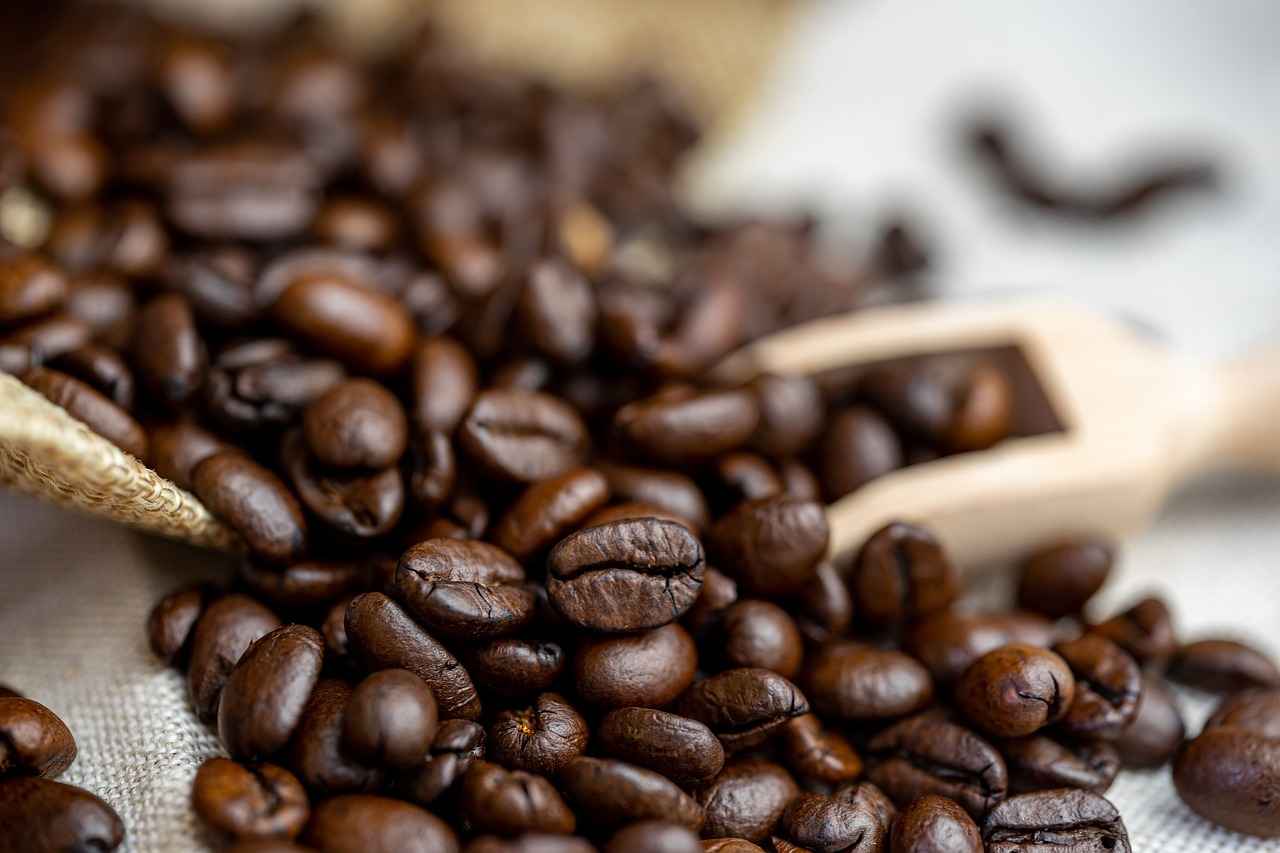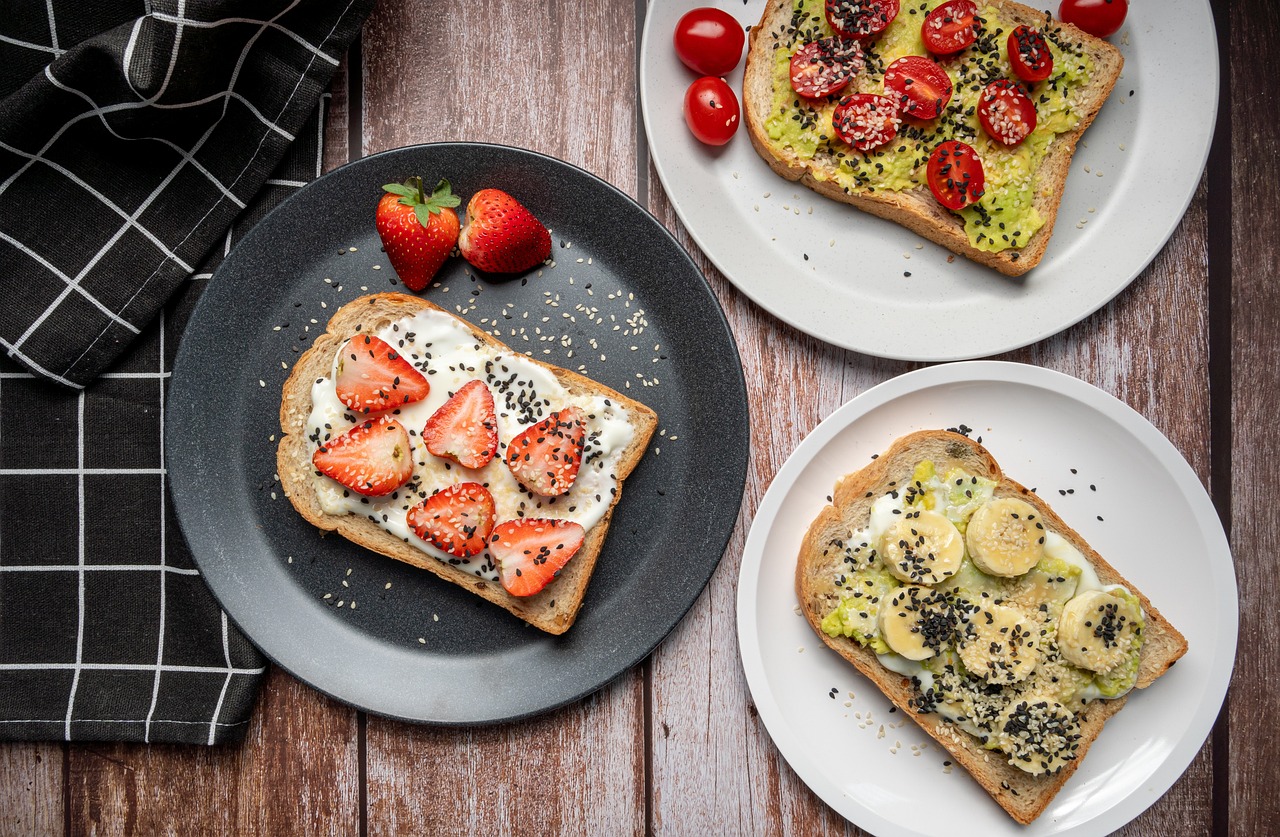Chia seeds, often hailed as a superfood, are tiny black seeds derived from the Salvia hispanica plant, native to Mexico and Guatemala. These seeds are not only rich in nutrients but also offer a multitude of health benefits that make them a fantastic addition to any diet. This article delves into the nutritional profile of chia seeds, their potential health impacts, and practical ways to incorporate them into your daily meals.
Chia seeds are a powerhouse of essential nutrients. They are particularly high in:
- Omega-3 fatty acids: These healthy fats are crucial for heart health.
- Dietary fiber: Aids in digestion and promotes satiety.
- Protein: Important for muscle repair and growth.
- Vitamins and minerals: Including calcium, magnesium, and phosphorus.
Understanding these nutrients helps highlight the numerous health benefits chia seeds can provide.
Chia seeds are an excellent source of dietary fiber, with about 10 grams per ounce. This high fiber content plays a significant role in promoting healthy digestion.
Fiber is essential for maintaining digestive health as it helps regulate bowel movements and supports the growth of beneficial gut bacteria. This can contribute to a healthier gut microbiome.
Yes! The ability of chia seeds to absorb water makes them effective in alleviating constipation. By promoting regular bowel movements, they can enhance overall digestive health.
For those looking to manage their weight, chia seeds can be a valuable ally. Their high fiber and protein content promote feelings of fullness, which may help reduce overall calorie intake.
Chia seeds may significantly contribute to heart health. The omega-3 fatty acids present in these seeds help reduce inflammation and lower triglyceride levels, which are vital for preventing heart disease.
Research indicates that chia seeds can help lower LDL cholesterol levels, contributing to improved cardiovascular health.
Rich in calcium, phosphorus, and magnesium, chia seeds are beneficial for maintaining strong bones. In just one ounce, chia seeds provide approximately 18% of the daily recommended intake of calcium.
The combination of essential nutrients in chia seeds may help reduce the risk of osteoporosis, especially in populations at risk for bone density loss.
Chia seeds are abundant in antioxidants and omega-3 fatty acids, both of which can help reduce inflammation in the body. Regular consumption may mitigate chronic inflammation and lower the risk of diseases such as heart disease and diabetes.
Incorporating chia seeds into your diet is easy and versatile. Here are some practical tips:
- Add them to smoothies for a nutrient boost.
- Mix them into yogurt or oatmeal for added texture.
- Use them in baking, such as in muffins or bread.
Chia seed pudding is a simple and nutritious snack. To make it, combine 1/4 cup of chia seeds with 1 cup of your choice of milk (dairy or plant-based) and let it sit for a few hours or overnight. Sweeten with honey or maple syrup and top with fruits or nuts for a delicious treat!

What Nutrients Are Found in Chia Seeds?
Chia seeds, often hailed as a superfood, are tiny black or white seeds derived from the Salvia hispanica plant, which is native to Mexico and Guatemala. These seeds have gained immense popularity due to their impressive nutritional profile and numerous health benefits. They are not only rich in essential nutrients but also offer a variety of health advantages that make them a valuable addition to any diet.
Chia seeds are packed with essential nutrients, including omega-3 fatty acids, fiber, protein, and various vitamins and minerals. Understanding their nutrient composition is vital for appreciating their health benefits.
- Omega-3 Fatty Acids: Chia seeds are one of the richest plant sources of omega-3 fatty acids, particularly alpha-linolenic acid (ALA). These healthy fats are known for their anti-inflammatory properties and are crucial for heart health.
- Dietary Fiber: Each ounce of chia seeds contains about 10 grams of fiber. This high fiber content aids in digestion, helps maintain bowel regularity, and supports weight management by promoting feelings of fullness.
- Protein: Chia seeds are composed of approximately 14% protein, making them an excellent plant-based protein source. This is particularly beneficial for vegetarians and vegans seeking to increase their protein intake.
- Vitamins and Minerals: Chia seeds are rich in essential vitamins and minerals, including calcium, magnesium, phosphorus, and manganese. These nutrients play a critical role in bone health, muscle function, and overall metabolic processes.
The combination of these nutrients makes chia seeds a powerhouse of health benefits. For instance, the high fiber content not only aids in digestion but also helps regulate blood sugar levels, making them a great choice for those managing diabetes. Additionally, the omega-3 fatty acids found in chia seeds can help lower cholesterol levels and reduce the risk of heart disease.
Moreover, chia seeds are incredibly versatile and can be easily incorporated into various meals. They can be added to smoothies, sprinkled on salads, or used to make chia seed pudding. This adaptability, along with their rich nutrient profile, makes them an excellent choice for anyone looking to enhance their diet.
In summary, chia seeds are not just a trendy health food; they are a nutrient-dense addition to your daily nutrition. Their combination of omega-3 fatty acids, fiber, protein, and essential vitamins and minerals underscores their status as a superfood. Including chia seeds in your diet can offer a wide range of health benefits, making them a worthy consideration for anyone looking to improve their overall well-being.
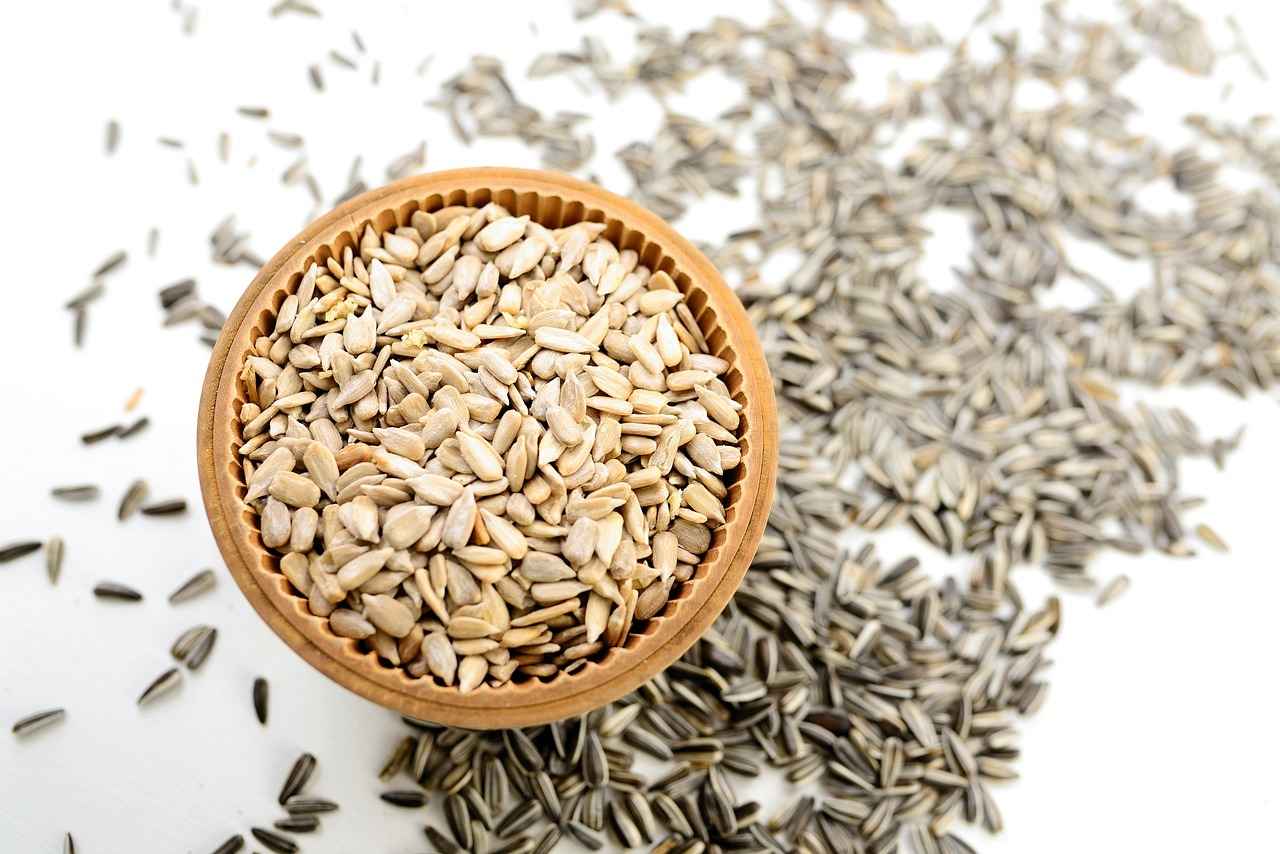
How Do Chia Seeds Support Digestive Health?
Chia seeds have gained popularity as a superfood, and for good reason. Among their many benefits, one of the most significant is their ability to support digestive health. This section will explore how these tiny seeds can enhance your digestion and help prevent gastrointestinal issues.
Chia seeds are an exceptional source of dietary fiber, containing approximately 10 grams of fiber per ounce. This high fiber content is crucial for maintaining a healthy digestive system. Fiber plays a key role in regulating bowel movements, preventing constipation, and promoting a feeling of fullness, which can aid in weight management.
Fiber is essential for healthy digestion. It adds bulk to the stool, making it easier to pass through the intestines. Additionally, fiber helps to feed the beneficial bacteria in the gut, promoting a healthy microbiome. A balanced gut microbiome can reduce the risk of gastrointestinal issues such as irritable bowel syndrome (IBS) and bloating.
Due to their unique ability to absorb water, chia seeds can help alleviate constipation. When soaked in liquid, they expand and form a gel-like substance, which can help to soften the stool and promote regular bowel movements. This can be particularly beneficial for individuals who struggle with irregularity.
- Improved Gut Health: Consuming fiber-rich foods like chia seeds can enhance gut health by promoting the growth of beneficial bacteria.
- Reduced Risk of Digestive Disorders: A high-fiber diet can lower the risk of developing conditions such as diverticulitis and hemorrhoids.
- Enhanced Nutrient Absorption: Fiber helps slow the digestion process, allowing for better absorption of nutrients from food.
Incorporating chia seeds into your daily meals is easy and versatile. Here are some practical tips:
- Add chia seeds to your morning smoothie for a nutrient boost.
- Sprinkle them on yogurt or oatmeal for added texture and fiber.
- Use chia seeds as a thickening agent in soups and sauces.
- Make chia seed pudding by soaking the seeds in milk or a milk alternative overnight.
While there is no specific recommended daily intake, consuming 1 to 2 ounces of chia seeds per day can provide significant health benefits. It’s important to increase your intake gradually to avoid digestive discomfort.
While chia seeds are generally safe for most people, it’s essential to drink plenty of water when consuming them, especially if you are eating them dry. This helps to prevent any potential digestive issues that may arise from their high fiber content.
In conclusion, chia seeds are a powerful ally in promoting digestive health. Their high fiber content, ability to absorb water, and versatility in meals make them an excellent choice for anyone looking to improve their gut health. By incorporating chia seeds into your diet, you can enjoy the numerous benefits they offer while supporting your digestive system.
What Role Does Fiber Play in Digestion?
Fiber plays a vital role in maintaining a healthy digestive system. It is a type of carbohydrate that the body cannot digest, which means it passes through the digestive tract largely intact. This unique characteristic allows fiber to perform several important functions that contribute to overall digestive health.
Fiber is essential for promoting regular bowel movements and preventing constipation. It adds bulk to the stool, making it easier to pass through the intestines. This can help reduce the risk of developing digestive disorders such as diverticulitis and hemorrhoids.
In addition to aiding in bowel regularity, fiber serves as a food source for the beneficial bacteria residing in our gut. These bacteria, often referred to as the gut microbiome, play a crucial role in digestion, nutrient absorption, and immune function. A diet rich in fiber can help increase the diversity and population of these beneficial bacteria, contributing to a healthier gut environment.
- Soluble Fiber: Found in foods like oats, beans, and fruits, soluble fiber dissolves in water to form a gel-like substance. It helps slow digestion and can aid in managing blood sugar levels.
- Insoluble Fiber: Present in whole grains, nuts, and vegetables, insoluble fiber does not dissolve in water. It adds bulk to the stool and helps food move through the digestive tract more efficiently.
The recommended daily intake of fiber varies based on age and gender. Generally, adult women should aim for about 25 grams of fiber per day, while men should target around 38 grams. However, most people fall short of these recommendations, leading to various digestive issues.
Research indicates that a high-fiber diet can lower the risk of developing certain digestive disorders. For instance, individuals who consume adequate amounts of fiber are less likely to experience constipation and are at a reduced risk for irritable bowel syndrome (IBS). Furthermore, fiber has been linked to a lower incidence of colorectal cancer.
Incorporating fiber-rich foods into your diet is easier than you might think. Some of the best sources include:
- Fruits: Apples, bananas, berries, and oranges.
- Vegetables: Carrots, broccoli, and leafy greens.
- Whole Grains: Brown rice, quinoa, and whole wheat bread.
- Legumes: Lentils, chickpeas, and black beans.
When increasing fiber intake, it’s important to do so gradually. Sudden increases can lead to bloating and discomfort. Aim to drink plenty of water, as fiber works best when it absorbs water, helping to soften stool and promote regularity.
In conclusion, fiber is a crucial component of a healthy diet that supports digestive health, gut bacteria, and overall well-being. By understanding its role and incorporating fiber-rich foods into your meals, you can enhance your digestive function and promote long-term health.
How Much Fiber Is in Chia Seeds?
Chia seeds, often hailed as a superfood, are not just a trendy addition to health-conscious diets; they are a powerhouse of nutrition. One of the most remarkable aspects of chia seeds is their impressive fiber content. With approximately 10 grams of fiber per ounce, they stand out as one of the richest sources of dietary fiber available. This high fiber content plays a crucial role in promoting digestive health and can significantly aid in weight management.
Why is Fiber Important?
Fiber is an essential component of a balanced diet, known for its numerous health benefits. It aids in regulating bowel movements, which is vital for maintaining digestive health. Moreover, fiber helps in the growth of beneficial gut bacteria, contributing to a healthy gut microbiome. A diet rich in fiber can also help prevent gastrointestinal issues such as constipation and bloating.
How Do Chia Seeds Contribute to Satiety?
One of the key benefits of consuming chia seeds is their ability to promote feelings of fullness. The high fiber content slows down digestion, which can help individuals feel satisfied for longer periods. This effect can be particularly beneficial for those looking to manage their weight, as it may lead to a reduction in overall calorie intake. By incorporating chia seeds into meals, individuals can enjoy a more satisfying eating experience without consuming excessive calories.
Can Chia Seeds Help Prevent Constipation?
Due to their unique ability to absorb water, chia seeds can help alleviate constipation. When soaked in liquid, they expand and form a gel-like consistency, which can aid in promoting regular bowel movements. This property makes chia seeds an excellent addition to meals, especially for individuals who struggle with digestive issues.
How to Incorporate Chia Seeds into Your Diet?
- Add chia seeds to smoothies for a nutrient boost.
- Mix them into yogurt or oatmeal for added texture and fiber.
- Use chia seeds in baking, such as in muffins or bread.
- Prepare chia seed pudding by soaking them in milk or a milk alternative overnight.
What Are the Recommended Daily Fiber Intake Guidelines?
The recommended daily intake of fiber varies by age and gender, but generally, adults should aim for about 25 to 30 grams of fiber per day. By incorporating chia seeds into your diet, you can easily meet a significant portion of this requirement. For instance, just two tablespoons of chia seeds provide about 10 grams of fiber, making it a simple way to enhance your fiber intake.
Final Thoughts on Chia Seeds and Fiber
In conclusion, chia seeds are an excellent source of dietary fiber, offering about 10 grams per ounce. Their high fiber content can aid in digestive health, promote satiety, and help prevent constipation. With various practical ways to incorporate chia seeds into your diet, they can be a valuable addition to your daily nutrition. Whether you’re looking to improve your digestive health or manage your weight, chia seeds can play a significant role in achieving your health goals.
Can Chia Seeds Help Prevent Constipation?
Chia seeds, scientifically known as Salvia hispanica, have gained immense popularity in the health and wellness community due to their remarkable nutritional profile. Among their many benefits, one of the most significant is their ability to support digestive health, particularly in preventing constipation. This article will delve into how chia seeds can be an effective natural remedy for constipation and promote overall digestive wellness.
Chia seeds are a powerhouse of dietary fiber, offering approximately 10 grams of fiber per ounce. This high fiber content is crucial for maintaining regular bowel movements and improving stool consistency. When chia seeds come into contact with water, they can absorb up to 12 times their weight, forming a gel-like substance that aids in the smooth passage of waste through the digestive tract.
Fiber plays a vital role in digestive health by:
- Promoting Regular Bowel Movements: Insoluble fiber adds bulk to the stool, which helps stimulate the intestines and encourages regular bowel movements.
- Improving Stool Consistency: The gel-like substance formed by chia seeds can soften stool, making it easier to pass and reducing the risk of constipation.
- Supporting Gut Health: A fiber-rich diet fosters the growth of beneficial gut bacteria, which is essential for a healthy digestive system.
Unlike many other sources of fiber, chia seeds are unique in their ability to absorb liquid. This property not only helps to keep the digestive system hydrated but also makes chia seeds an excellent option for those looking to enhance their fiber intake without consuming excessive calories. The gel-forming ability of chia seeds can also help to create a feeling of fullness, which may aid in weight management.
Incorporating chia seeds into your daily routine is simple and versatile. Here are some easy ways to enjoy their benefits:
- Chia Seed Pudding: Combine chia seeds with your choice of milk or yogurt, let it sit overnight, and enjoy a nutritious breakfast or snack.
- Smoothies: Add a tablespoon of chia seeds to your favorite smoothie for an extra fiber boost.
- Oatmeal or Cereal: Sprinkle chia seeds on top of your morning oatmeal or cereal for added texture and nutrition.
- Baking: Incorporate chia seeds into baked goods like muffins or bread for enhanced fiber content.
To reap the digestive benefits of chia seeds, it is recommended to consume 1-2 tablespoons per day. However, it is essential to gradually increase your fiber intake to allow your digestive system to adjust, especially if you are not accustomed to a high-fiber diet.
While chia seeds are generally safe for most people, it is important to drink plenty of water when consuming them, especially if you are eating them dry. This helps to prevent any potential digestive discomfort. If you have any underlying health conditions or concerns, it is advisable to consult with a healthcare professional before adding chia seeds to your diet.
In summary, chia seeds are an excellent natural remedy for preventing constipation due to their high fiber content and unique water-absorbing properties. By incorporating chia seeds into your diet, you can promote regular bowel movements and improve your overall digestive health.
Do Chia Seeds Aid in Weight Management?
Chia seeds have gained popularity as a superfood in recent years, particularly among those seeking to manage their weight. These tiny seeds are not only nutrient-dense but also offer unique properties that can assist in weight management. In this section, we will explore how chia seeds can help you achieve your weight loss goals.
Chia seeds are rich in dietary fiber and protein, two essential components that contribute to a feeling of fullness. By incorporating chia seeds into your diet, you may find it easier to control your appetite and reduce overall calorie intake.
The high fiber content in chia seeds—approximately 10 grams per ounce—plays a crucial role in weight management. Fiber helps to slow down the digestion process, leading to prolonged feelings of satiety. This means that you are less likely to experience hunger pangs shortly after a meal. Moreover, fiber helps regulate blood sugar levels, preventing spikes that can lead to cravings.
Chia seeds also contain a significant amount of protein, which is essential for muscle maintenance and growth. Protein has a higher thermic effect compared to fats and carbohydrates, meaning your body burns more calories digesting it. Including protein-rich foods like chia seeds in your meals can boost metabolism and help in weight loss.
One of the unique properties of chia seeds is their ability to absorb water. When soaked, they can expand up to 12 times their original size. This characteristic allows them to form a gel-like substance in your stomach, further enhancing feelings of fullness and reducing the likelihood of overeating.
- Add chia seeds to smoothies for a nutrient boost.
- Mix them into yogurt or oatmeal for added texture and fiber.
- Use chia seeds as an egg substitute in baking, which can help reduce calorie intake.
- Prepare chia seed pudding as a healthy snack or dessert.
While chia seeds are generally safe for most people, it is essential to consume them in moderation. Due to their high fiber content, excessive consumption can lead to digestive discomfort. It is advisable to gradually increase your intake and drink plenty of water to aid digestion.
Incorporating chia seeds into your diet can be a beneficial strategy for weight management. Their high fiber and protein content, coupled with their unique ability to absorb water, can promote feelings of fullness and help regulate appetite. By making simple adjustments to your meals, you can leverage the health benefits of chia seeds to support your weight loss journey.

What Are the Heart Health Benefits of Chia Seeds?
Chia seeds have garnered attention for their numerous health benefits, particularly in relation to heart health. These tiny seeds are not only packed with essential nutrients but also possess properties that can significantly impact cardiovascular wellness. This article delves into the various ways chia seeds contribute to a healthier heart, focusing on cholesterol levels, blood pressure, and overall heart function.
One of the most significant benefits of chia seeds is their potential to lower cholesterol levels. Research indicates that consuming chia seeds can lead to a reduction in LDL cholesterol (often referred to as “bad” cholesterol). This is crucial because high levels of LDL cholesterol are associated with an increased risk of heart disease. A study published in the American Journal of Clinical Nutrition found that participants who included chia seeds in their diet experienced notable improvements in their cholesterol profiles.
Another important aspect of heart health is blood pressure regulation. Chia seeds are rich in omega-3 fatty acids, which have been shown to have a positive effect on blood pressure levels. These fatty acids help to relax blood vessels, improving circulation and reducing the overall strain on the heart. A systematic review in the Journal of Hypertension highlighted that diets high in omega-3s could lead to significant reductions in both systolic and diastolic blood pressure.
Chia seeds are also a rich source of antioxidants, which are vital for combating oxidative stress in the body. Oxidative stress can contribute to inflammation and damage to blood vessels, increasing the risk of heart disease. By incorporating chia seeds into your diet, you can enhance your antioxidant intake, which can help protect your heart and improve overall cardiovascular health.
The combination of fiber, omega-3 fatty acids, and antioxidants in chia seeds creates a powerful formula for promoting overall cardiovascular wellness. The high fiber content aids in maintaining healthy blood sugar levels and supports weight management, both of which are essential for heart health. Furthermore, chia seeds can help reduce inflammation in the body, a key factor in preventing chronic diseases, including heart disease.
- Add to Smoothies: Blend chia seeds into your morning smoothie for an extra boost of nutrients.
- Mix into Yogurt: Stir chia seeds into yogurt for a satisfying snack that promotes heart health.
- Use in Baking: Incorporate chia seeds into muffins and bread recipes for added fiber and omega-3s.
- Make Chia Pudding: Soak chia seeds in almond milk or coconut milk to create a delicious pudding.
In conclusion, incorporating chia seeds into your diet can provide significant benefits for heart health. Their ability to lower cholesterol levels, regulate blood pressure, and provide essential nutrients makes them a valuable addition to any heart-healthy eating plan. By understanding and utilizing the heart health benefits of chia seeds, you can take proactive steps towards maintaining a healthier cardiovascular system.
How Do Omega-3 Fatty Acids Benefit Heart Health?
Omega-3 fatty acids are essential fats that the body cannot produce on its own, making it crucial to obtain them through diet. Found abundantly in chia seeds, these fatty acids have garnered significant attention for their numerous health benefits, particularly in relation to heart health. Understanding how omega-3s function can help individuals make informed dietary choices that promote cardiovascular wellness.
Omega-3 fatty acids are a type of polyunsaturated fat that includes three primary forms: ALA (alpha-linolenic acid), EPA (eicosapentaenoic acid), and DHA (docosahexaenoic acid). ALA is predominantly found in plant sources like chia seeds, while EPA and DHA are primarily sourced from fish and algae. Each of these fatty acids plays a unique role in supporting heart health.
Chronic inflammation is a key contributor to various cardiovascular diseases. Omega-3 fatty acids have been shown to possess anti-inflammatory properties, which help mitigate this risk. By reducing the production of inflammatory substances in the body, omega-3s can lower the likelihood of plaque buildup in the arteries, a condition known as atherosclerosis. This reduction in inflammation can lead to improved blood flow and a decreased risk of heart attacks.
High triglyceride levels are a significant risk factor for heart disease. Research indicates that omega-3 fatty acids can effectively lower triglyceride levels in the bloodstream. Regular consumption of chia seeds, rich in ALA, can help maintain healthy triglyceride levels, thereby contributing to overall heart health. A study published in the American Journal of Clinical Nutrition found that individuals who incorporated omega-3-rich foods into their diets experienced a notable decrease in triglyceride levels.
In addition to lowering triglycerides, omega-3 fatty acids can positively influence cholesterol levels. They have been associated with increased levels of HDL (high-density lipoprotein), known as the “good” cholesterol, which helps remove cholesterol from the bloodstream. A balance between HDL and LDL (low-density lipoprotein) cholesterol is vital for cardiovascular health, and chia seeds can play a role in achieving this balance.
High blood pressure is another major risk factor for heart disease. Omega-3 fatty acids may help lower blood pressure by promoting the dilation of blood vessels and improving overall vascular function. A meta-analysis conducted by the Journal of Hypertension concluded that individuals who consumed omega-3 fatty acids regularly experienced modest reductions in blood pressure, further underscoring their heart-protective benefits.
Incorporating chia seeds into your diet is simple and versatile. They can be added to smoothies, yogurt, oatmeal, or even baked goods. For a quick and nutritious snack, consider making chia seed pudding by mixing chia seeds with your choice of milk and letting them sit until they thicken. This not only provides a delicious treat but also delivers a healthy dose of omega-3s.
In summary, the omega-3 fatty acids found in chia seeds are a powerful ally in promoting heart health. By reducing inflammation, lowering triglyceride levels, improving cholesterol profiles, and supporting healthy blood pressure, these essential fats contribute significantly to cardiovascular wellness. Including chia seeds in your diet can be a simple yet effective way to harness their heart-healthy benefits.
Can Chia Seeds Lower Cholesterol Levels?
Chia seeds, tiny yet powerful, have garnered significant attention for their potential health benefits, particularly in relation to heart health. One of the most compelling claims supported by research is their ability to lower LDL cholesterol levels. In this section, we will explore the evidence behind this assertion and its implications for cardiovascular well-being.
Cholesterol is a waxy substance found in your blood, essential for building healthy cells. However, having high levels of LDL (low-density lipoprotein) cholesterol can increase the risk of heart disease and stroke. It is often referred to as “bad” cholesterol because it can lead to the buildup of plaque in arteries, narrowing them and restricting blood flow.
Research indicates that chia seeds may contribute to lowering LDL cholesterol levels due to their rich nutrient profile. They are high in omega-3 fatty acids, fiber, and antioxidants, all of which play a role in maintaining heart health.
- Clinical Trials: Several clinical studies have shown that incorporating chia seeds into the diet can lead to a significant reduction in LDL cholesterol levels. One study found that participants who consumed chia seeds daily experienced a decrease in LDL cholesterol by up to 10% over a period of just a few weeks.
- Omega-3 Fatty Acids: The omega-3 fatty acids found in chia seeds, particularly alpha-linolenic acid (ALA), are known to improve heart health by reducing inflammation and lowering triglyceride levels. This can indirectly contribute to lower LDL cholesterol levels.
- Fiber Content: Chia seeds are an excellent source of dietary fiber, containing about 10 grams per ounce. This high fiber content can help improve cholesterol levels by binding to bile acids in the digestive system, promoting their excretion and reducing overall cholesterol levels in the body.
To reap the cholesterol-lowering benefits of chia seeds, consider incorporating them into your daily meals. Here are some practical suggestions:
- Add chia seeds to smoothies for a nutrient boost.
- Sprinkle them on yogurt or oatmeal for added texture and health benefits.
- Use chia seeds as an egg substitute in baking, which can also increase the nutritional value of your baked goods.
- Prepare chia seed pudding by soaking them in almond milk or coconut milk overnight for a delicious and heart-healthy snack.
In summary, the evidence supporting the cholesterol-lowering effects of chia seeds is promising. By incorporating these tiny seeds into your diet, you may not only enjoy their nutritional benefits but also take a proactive step toward better heart health. As with any dietary changes, it is advisable to consult with a healthcare professional, especially if you have existing health conditions or concerns.
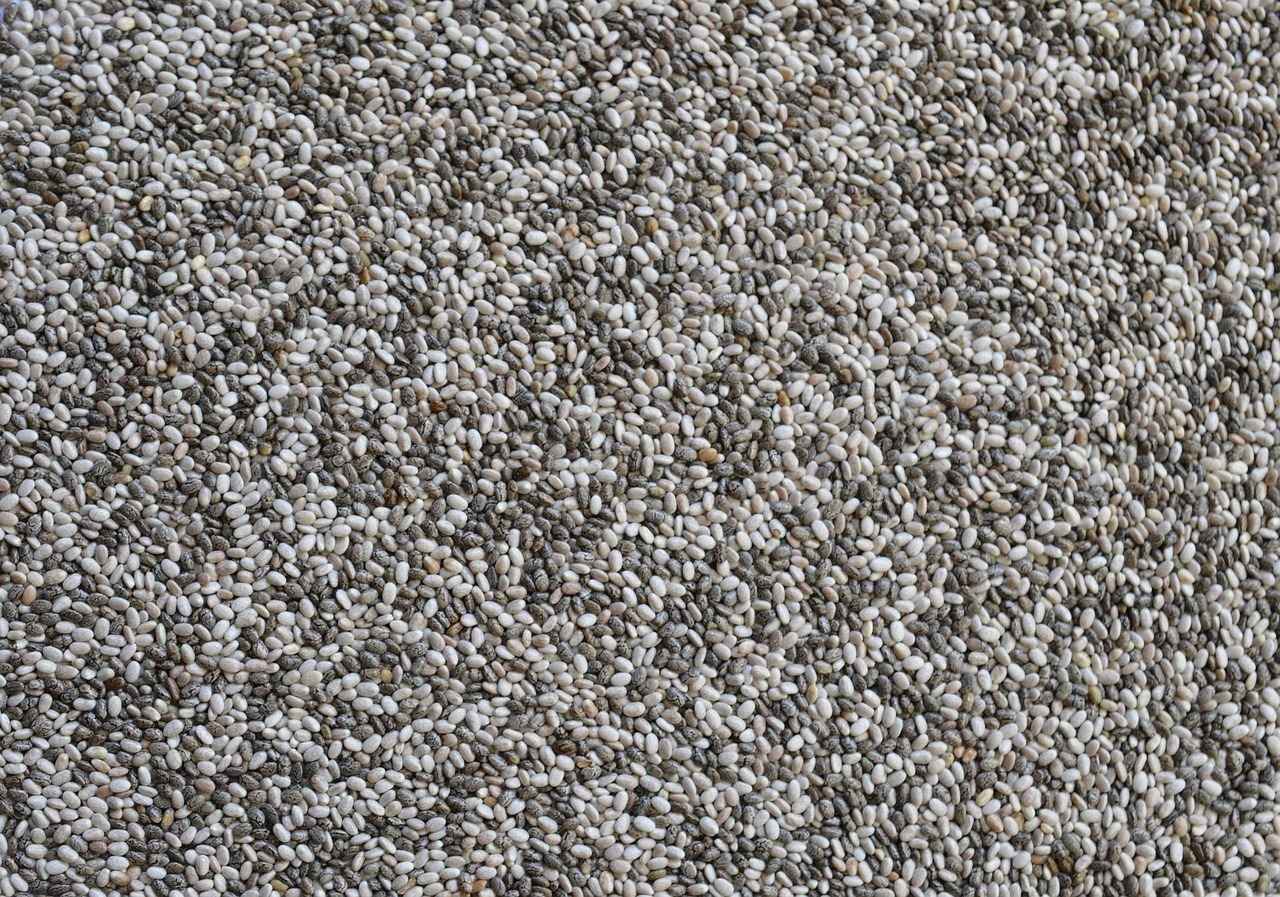
How Can Chia Seeds Enhance Bone Health?
Chia seeds have gained popularity in recent years, not just for their versatility in cooking but also for their impressive nutritional profile. Among their many benefits, one of the most significant is their contribution to bone health. This section delves into how chia seeds can enhance bone strength and density, focusing on their rich content of essential minerals.
Chia seeds are a powerhouse of calcium, phosphorus, and magnesium, all of which play a critical role in maintaining healthy bones. These minerals work together to ensure that bones remain strong and resilient throughout life.
Calcium is vital for bone health, and chia seeds provide approximately 18% of the recommended daily intake in just one ounce. This high calcium content makes chia seeds an excellent choice, especially for individuals following a plant-based diet who may struggle to meet their calcium needs.
Phosphorus is another essential mineral found in chia seeds. It works alongside calcium to form strong bones and teeth. A balanced ratio of calcium to phosphorus is crucial for optimal bone health, and chia seeds offer this perfect balance.
Magnesium is often overlooked but is equally important for bone health. It helps convert vitamin D into its active form, which is necessary for calcium absorption. Chia seeds contain a significant amount of magnesium, which can help in maintaining strong bones and preventing conditions like osteoporosis.
The combination of calcium, phosphorus, and magnesium in chia seeds may play a protective role against osteoporosis, especially in populations at risk for bone density loss. Regular consumption of these seeds can help in maintaining bone mass and reducing the likelihood of fractures.
- Add to Smoothies: Blend chia seeds into your smoothies for a nutrient boost.
- Top Your Yogurt: Sprinkle chia seeds on yogurt or oatmeal for added crunch and nutrition.
- Baking: Incorporate chia seeds into baked goods like muffins and bread for enhanced nutrient content.
Incorporating chia seeds into your diet is easy and can be delicious. Here are a few simple recipes:
1. Chia Seed Pudding: - Mix 1/4 cup chia seeds with 1 cup almond milk. - Sweeten with honey or maple syrup. - Refrigerate overnight and enjoy with fruits.2. Chia Seed Smoothie: - Blend 1 banana, 1 cup spinach, 1 tablespoon chia seeds, and 1 cup almond milk. - Enjoy a nutritious breakfast or snack.
In summary, chia seeds are not only a versatile ingredient but also a significant contributor to bone health due to their rich mineral content. By incorporating these tiny seeds into your diet, you can support your bone strength and overall wellness.
What Is the Calcium Content in Chia Seeds?
Chia seeds have gained immense popularity in recent years, not only for their versatility in cooking but also for their impressive nutritional profile. One of the standout features of chia seeds is their calcium content. In fact, just one ounce of chia seeds provides approximately 18% of the daily recommended intake of calcium. This makes chia seeds an exceptional source of plant-based calcium, which is crucial for maintaining strong and healthy bones.
Calcium is a vital mineral that plays a significant role in bone health. It is essential for developing and maintaining strong bones and teeth. Adequate calcium intake helps prevent bone-related disorders such as osteoporosis, a condition characterized by weak and brittle bones. For individuals who follow a plant-based diet or those who are lactose intolerant, finding alternative sources of calcium becomes crucial.
When comparing chia seeds to traditional calcium sources such as dairy products, they stand out due to their high nutrient density. While a cup of milk contains about 300 mg of calcium, one ounce of chia seeds offers around 177 mg. Additionally, chia seeds come with the added benefits of fiber, protein, and omega-3 fatty acids, making them a powerhouse of nutrition.
In addition to calcium, chia seeds are rich in other essential nutrients that contribute to bone health:
- Phosphorus: Vital for bone formation and maintenance.
- Magnesium: Plays a role in calcium absorption and bone structure.
- Vitamin K: Important for bone mineralization.
The combination of calcium, phosphorus, and magnesium in chia seeds may help reduce the risk of osteoporosis, especially in populations at risk for bone density loss. Regular consumption of chia seeds can be an effective strategy for enhancing bone health and preventing age-related bone deterioration.
Incorporating chia seeds into your daily diet is easy and can be done in various ways:
- Add them to smoothies for a nutrient boost.
- Mix them into yogurt or oatmeal for added texture and nutrition.
- Use them in baking, such as in muffins or bread.
- Make chia seed pudding by soaking them in milk or a dairy-free alternative overnight.
By adding chia seeds to your meals, you can easily increase your calcium intake while also benefiting from their other health properties.
The recommended daily calcium intake varies by age and gender. Generally, adults need about 1,000 mg of calcium per day, increasing to 1,200 mg for women over 50 and men over 70. Including chia seeds in your diet can help meet these requirements, especially for those seeking plant-based sources of this essential mineral.
In conclusion, chia seeds are not just a trendy superfood; they are a significant source of calcium and other nutrients that support bone health. By incorporating chia seeds into your daily diet, you can take proactive steps toward maintaining strong bones and overall health.
Can Chia Seeds Help Prevent Osteoporosis?
Chia seeds have gained recognition for their impressive nutritional profile, particularly in relation to bone health. Among their many benefits, the combination of essential minerals such as calcium, phosphorus, and magnesium makes them a valuable addition to the diet, especially for those at risk of osteoporosis.
Osteoporosis is a condition characterized by weak and brittle bones, increasing the risk of fractures. It affects millions worldwide, particularly postmenopausal women and older adults. Understanding how to prevent osteoporosis is crucial for maintaining bone health as we age.
Calcium is well-known for its role in building and maintaining strong bones. However, it works best in conjunction with other minerals. Phosphorus plays a vital role in bone formation and helps to strengthen bones, while magnesium is essential for converting vitamin D into its active form, which is crucial for calcium absorption. Together, these minerals create a synergistic effect that enhances bone density and health.
| Nutrient | Amount per 1 oz (28g) |
|---|---|
| Calcium | 18% of the Daily Value |
| Phosphorus | 27% of the Daily Value |
| Magnesium | 24% of the Daily Value |
This impressive mineral content makes chia seeds one of the best plant-based sources for those looking to boost their intake of these essential nutrients.
The combination of calcium, phosphorus, and magnesium in chia seeds may help reduce the risk of osteoporosis, particularly in populations at risk for bone density loss. Regular consumption of chia seeds can contribute to better bone health, especially for individuals who may not consume enough dairy or other calcium-rich foods.
- Add to Smoothies: Blend chia seeds into your favorite smoothies for an added nutrient boost.
- Mix into Yogurt: Stir chia seeds into yogurt for a crunchy texture and nutritional enhancement.
- Use in Baking: Incorporate chia seeds into baked goods like muffins or bread for added fiber and minerals.
- Make Chia Pudding: Combine chia seeds with milk or a milk alternative and let them soak overnight for a delicious pudding.
Incorporating chia seeds into your diet is not only simple but also a delicious way to support your bone health. With their rich mineral content, they can be a key player in a balanced diet aimed at preventing osteoporosis.

What Are the Anti-Inflammatory Properties of Chia Seeds?
Chia seeds, small yet powerful, have gained significant attention for their health benefits, particularly their anti-inflammatory properties. In this section, we will explore how these tiny seeds can contribute to reducing inflammation and promoting overall health.
Chia seeds are rich in omega-3 fatty acids and antioxidants, both of which are known for their ability to combat inflammation in the body. The primary omega-3 fatty acid found in chia seeds is alpha-linolenic acid (ALA), which has been shown to have several health benefits. Regular consumption of chia seeds may help mitigate chronic inflammation, potentially reducing the risk of diseases such as heart disease, diabetes, and certain cancers.
The omega-3 fatty acids in chia seeds play a crucial role in regulating inflammatory processes. They help to produce anti-inflammatory compounds known as resolvins and protectins, which actively work to resolve inflammation in the body. By incorporating chia seeds into your diet, you can enhance your body’s ability to manage and reduce inflammation.
Chia seeds are also a rich source of antioxidants, which help to neutralize free radicals in the body. Free radicals can cause oxidative stress, leading to inflammation and chronic disease. The antioxidants found in chia seeds, such as quercetin and chlorogenic acid, contribute to reducing oxidative stress, thereby supporting the body’s inflammatory response.
Chronic inflammation is linked to various health issues, including autoimmune disorders, heart disease, and diabetes. Studies suggest that regular consumption of chia seeds may help lower markers of inflammation in the body, such as C-reactive protein (CRP). By reducing these markers, chia seeds can play a role in improving overall health and well-being.
- Add to Smoothies: Blend chia seeds into your morning smoothie for a nutrient boost.
- Top Your Salads: Sprinkle chia seeds on salads for added crunch and health benefits.
- Make Chia Pudding: Soak chia seeds in almond milk or yogurt overnight for a delicious and nutritious snack.
Incorporating chia seeds into your daily diet can be easy and versatile. Their mild flavor allows them to blend seamlessly into various dishes, making them an excellent addition to your meals.
While chia seeds are generally safe for most people, it is important to consume them in moderation. Due to their high fiber content, excessive consumption may lead to digestive discomfort. It is advisable to start with a small amount and gradually increase your intake.
In conclusion, chia seeds are a powerhouse of nutrition, offering significant anti-inflammatory properties that can contribute to better health. With their rich content of omega-3 fatty acids and antioxidants, they provide an effective way to combat inflammation and promote overall well-being. By incorporating chia seeds into your diet, you can take a proactive step towards a healthier lifestyle.
How Do Antioxidants Benefit Health?
Antioxidants are crucial for maintaining overall health by protecting the body from oxidative stress and inflammation. These compounds neutralize free radicals, which are unstable molecules that can damage cells and lead to various chronic diseases. The body naturally produces some antioxidants, but dietary sources are essential for optimal health. One such source is chia seeds, which are increasingly recognized for their rich antioxidant content.
- Reduction of Oxidative Stress: Antioxidants help to combat oxidative stress by neutralizing free radicals. This can reduce the risk of chronic diseases such as heart disease, diabetes, and cancer.
- Anti-Inflammatory Properties: Chronic inflammation is linked to many health issues. Antioxidants can help reduce inflammation in the body, promoting better overall health.
- Support for Immune Function: A robust immune system is vital for fighting off infections and diseases. Antioxidants can enhance immune function, making the body more resilient.
- Improved Skin Health: Antioxidants can protect skin cells from damage caused by UV rays and pollution, potentially reducing signs of aging and promoting a youthful appearance.
Chia seeds are not only a rich source of fiber and omega-3 fatty acids but also contain numerous antioxidants, including quercetin, kaempferol, and chlorogenic acid. These compounds work synergistically to enhance the body’s defenses against oxidative stress.
Regular consumption of chia seeds may play a significant role in reducing the risk of chronic diseases. The antioxidants found in chia seeds can help mitigate inflammation, which is a precursor to many health conditions, including:
- Heart Disease: By lowering inflammation and improving cholesterol levels, chia seeds can contribute to heart health.
- Diabetes: Antioxidants can help regulate blood sugar levels, potentially reducing the risk of type 2 diabetes.
- Cancer: Some studies suggest that the anti-inflammatory properties of antioxidants may lower the risk of certain cancers.
To reap the antioxidant benefits of chia seeds, incorporating just one to two tablespoons into your daily diet can be effective. This amount provides a substantial dose of antioxidants along with other essential nutrients.
Incorporating chia seeds into your meals is both simple and versatile. Here are a few practical suggestions:
- Add to Smoothies: Blend chia seeds into your favorite smoothie for a nutrient boost.
- Sprinkle on Salads: Toss chia seeds onto salads for added texture and nutrition.
- Make Chia Pudding: Combine chia seeds with milk or a milk alternative, let it sit overnight, and enjoy a delicious pudding.
In summary, antioxidants play a vital role in promoting health and preventing disease, and chia seeds are an excellent source of these beneficial compounds. By incorporating chia seeds into your diet, you can enhance your antioxidant intake and support your overall health.
Can Chia Seeds Help with Chronic Inflammation?
Chronic inflammation is increasingly recognized as a significant contributor to various health conditions, including heart disease, diabetes, and certain types of cancer. Understanding how to mitigate this inflammation can be crucial for maintaining overall health. One natural food that has gained attention for its potential anti-inflammatory properties is chia seeds.
Chia seeds are not only a source of essential nutrients but also contain a variety of compounds that may help reduce inflammation. Their rich content of omega-3 fatty acids and antioxidants plays a pivotal role in combating inflammation in the body.
One of the standout features of chia seeds is their high concentration of alpha-linolenic acid (ALA), a type of omega-3 fatty acid. Studies have shown that omega-3 fatty acids can help lower the production of inflammatory markers in the body. By incorporating chia seeds into your diet, you may increase your intake of these beneficial fats, which can contribute to reduced inflammation.
Chia seeds are also packed with antioxidants, which are crucial for neutralizing free radicals in the body. Free radicals can cause oxidative stress, leading to inflammation and various chronic diseases. By consuming chia seeds, you can enhance your antioxidant intake, potentially lowering your risk of inflammation-related health issues.
Research suggests that regular consumption of chia seeds may help mitigate chronic inflammation, which in turn can lower the risk of diseases such as:
- Heart Disease: Inflammation is a key factor in the development of cardiovascular diseases. By reducing inflammation, chia seeds may support heart health.
- Diabetes: Chronic inflammation is linked to insulin resistance, a precursor to type 2 diabetes. Chia seeds may help improve insulin sensitivity.
- Certain Cancers: Some studies indicate that a diet rich in omega-3 fatty acids and antioxidants may lower the risk of specific cancers by reducing inflammation.
To harness the anti-inflammatory benefits of chia seeds, consider adding them to your daily meals. Here are some practical ways to include chia seeds in your diet:
- Add them to smoothies for a nutrient boost.
- Mix them into yogurt or oatmeal for added texture and health benefits.
- Use them as an egg substitute in baking by mixing chia seeds with water.
- Sprinkle them on salads for a crunchy topping.
While chia seeds are beneficial, moderation is key. A typical serving size is about 1 to 2 tablespoons (15-30 grams) per day. This amount can provide a substantial dose of omega-3 fatty acids and fiber without excessive calorie intake.
Although chia seeds are generally safe for most people, it’s essential to consume them with adequate water, as they can absorb liquid and expand. Additionally, those with certain medical conditions or allergies should consult a healthcare professional before introducing chia seeds into their diet.
In summary, chia seeds offer a wealth of health benefits, particularly in their potential to combat chronic inflammation. By incorporating these tiny seeds into your diet, you may not only enhance your nutrient intake but also take proactive steps toward reducing the risk of chronic diseases.
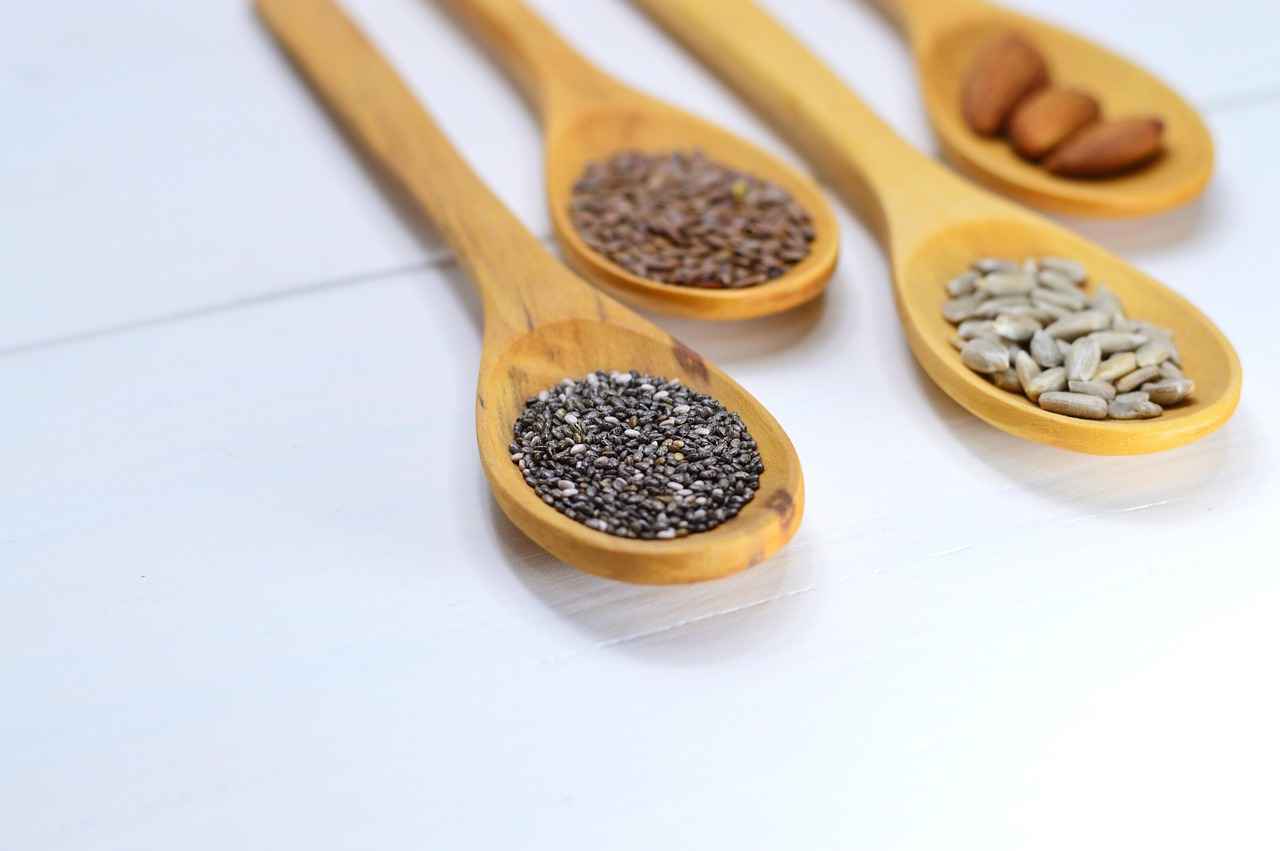
How Can You Incorporate Chia Seeds into Your Diet?
Incorporating chia seeds into your diet is not only easy but also incredibly versatile, allowing you to enjoy their numerous health benefits in a variety of ways. These tiny seeds can be seamlessly integrated into your meals and snacks, enhancing both flavor and nutrition. Below are some practical tips and recipes to help you make the most of chia seeds in your daily diet.
- Smoothies: Add a tablespoon of chia seeds to your favorite smoothie for a nutrient boost. They blend well and provide a satisfying texture.
- Yogurt: Stir chia seeds into yogurt or plant-based alternatives for added fiber and protein. You can also let them sit for a few minutes to create a thicker consistency.
- Oatmeal: Mix chia seeds into your morning oatmeal. They not only enhance the nutritional profile but also add a delightful crunch.
- Baked Goods: Incorporate chia seeds into muffins, bread, or pancakes. They can replace eggs in vegan recipes when mixed with water, creating a binding effect.
Chia seed pudding is a popular and nutritious snack that is incredibly easy to prepare. Here’s a simple recipe to get you started:
Ingredients:- 1 cup of almond milk (or any milk of your choice)- 1/4 cup of chia seeds- 1-2 tablespoons of sweetener (honey, maple syrup, or agave)- 1 teaspoon of vanilla extract- Toppings: fresh fruits, nuts, or granolaInstructions:1. In a bowl, whisk together the almond milk, chia seeds, sweetener, and vanilla extract.2. Let the mixture sit for about 10 minutes, then stir again to prevent clumping.3. Cover and refrigerate for at least 2 hours or overnight until it thickens.4. Serve chilled with your favorite toppings.
Chia seeds can be transformed into delicious snacks that are both filling and nutritious. Consider making chia energy bars by mixing chia seeds with oats, nut butter, and dried fruits. Press the mixture into a baking dish, refrigerate until firm, and cut into bars for a convenient on-the-go snack.
Chia seeds can also enhance salads. Try sprinkling them over fresh greens or incorporating them into dressings. Their ability to absorb liquid makes them a great addition to homemade vinaigrettes, adding a nutritious twist.
While chia seeds are safe for most people, it’s essential to consume them with plenty of water, as they expand and absorb liquid. Start with small amounts if you’re new to chia seeds to see how your body reacts.
In summary, incorporating chia seeds into your diet is a simple yet effective way to boost your nutrition. With their versatility, you can enjoy them in smoothies, puddings, baked goods, and salads. Explore the many possibilities and discover how these tiny seeds can significantly enhance your meals!
What Are Some Easy Ways to Use Chia Seeds?
Chia seeds are not only nutritious but also incredibly versatile, making them an excellent addition to a variety of dishes. Their mild flavor allows them to blend seamlessly into both sweet and savory recipes, enhancing the nutritional profile without overpowering other ingredients. Here are some easy and delicious ways to incorporate chia seeds into your daily meals:
One of the simplest ways to enjoy chia seeds is by adding them to smoothies. They can provide a boost of fiber and omega-3 fatty acids, making your drink more filling and nutritious. To prepare, simply:
- Combine your favorite fruits, vegetables, and liquid (such as almond milk or yogurt).
- Add 1-2 tablespoons of chia seeds to the blender.
- Blend until smooth, and enjoy a healthy, energizing smoothie!
Chia seeds can transform a simple bowl of yogurt into a nutrient-rich snack. Here’s how:
- Mix 1 tablespoon of chia seeds into a serving of yogurt.
- Let it sit for about 10-15 minutes to allow the seeds to swell and create a thicker texture.
- Top with fresh fruits, nuts, or honey for added flavor and nutrition.
Boosting your morning oatmeal with chia seeds is both easy and satisfying. Follow these steps:
- Prepare your oatmeal as usual, either by cooking it on the stove or microwaving it.
- Add 1 tablespoon of chia seeds while cooking or after it’s done.
- Mix well and let it sit for a few minutes to absorb moisture.
- Top with fruits, spices, or sweeteners of your choice.
Chia seeds can also be a fantastic addition to baked goods. They can be used in:
- Breads: Add 2 tablespoons of chia seeds to your bread dough for added nutrition.
- Muffins: Incorporate chia seeds into muffin batter for a healthful twist.
- Cookies: Mix chia seeds into cookie dough for a chewy texture and extra fiber.
Chia seed pudding is a delicious and nutritious snack that’s incredibly easy to make:
Ingredients:- 1/4 cup chia seeds- 1 cup almond milk (or any milk of choice)- 1 tablespoon sweetener (honey, agave, or maple syrup)- Optional toppings: fruits, nuts, or granolaInstructions:1. In a bowl, mix chia seeds, almond milk, and sweetener.2. Stir well and let it sit for about 5 minutes.3. Stir again to prevent clumping, then refrigerate for at least 2 hours or overnight.4. Serve chilled with your favorite toppings.
In conclusion, there are numerous ways to enjoy chia seeds in your diet. Whether you’re blending them into smoothies, stirring them into yogurt, enhancing your oatmeal, baking them into goods, or making a delightful pudding, chia seeds can easily elevate your meals while providing a wealth of health benefits. Their versatility and nutritional value make them a must-have in any kitchen.
How to Make Chia Seed Pudding?
Chia seed pudding is not only a delicious snack but also a powerhouse of nutrition. Whether you’re looking for a quick breakfast, a satisfying dessert, or a healthy snack, chia seed pudding fits the bill. This versatile dish can be easily customized to suit your taste preferences and dietary needs.
- 1/4 cup chia seeds
- 1 cup almond milk (or any milk of your choice)
- 1-2 tablespoons sweetener (honey, maple syrup, or agave syrup)
- 1/2 teaspoon vanilla extract (optional)
- Toppings: fresh fruits, nuts, seeds, or granola
- Combine Ingredients: In a mixing bowl, combine the chia seeds, almond milk, sweetener, and vanilla extract. Stir well to ensure the chia seeds are evenly distributed.
- Let It Sit: Allow the mixture to sit for about 5-10 minutes. This will allow the chia seeds to absorb the liquid and swell, creating a pudding-like texture.
- Stir Again: After the initial sitting time, stir the mixture again to break up any clumps of chia seeds. This will ensure a smooth consistency.
- Refrigerate: Cover the bowl with plastic wrap or transfer the mixture to a jar with a lid. Refrigerate for at least 2 hours, or overnight for best results. The longer it sits, the thicker it will become.
- Serve: Once the pudding has reached your desired consistency, serve it in bowls or jars. Top with your favorite fruits, nuts, or granola for added flavor and texture.
Chia seed pudding is incredibly nutritious and offers a variety of health benefits. Rich in omega-3 fatty acids, fiber, and protein, it can help you feel full and satisfied. Additionally, the pudding is gluten-free and can be made vegan, making it suitable for various dietary preferences.
The beauty of chia seed pudding lies in its versatility. Here are a few ideas to customize your pudding:
- Fruits: Add berries, banana slices, or mango for natural sweetness and added vitamins.
- Nuts and Seeds: Top with almonds, walnuts, or pumpkin seeds for a crunchy texture and healthy fats.
- Spices: Incorporate cinnamon or cocoa powder for flavor enhancement.
- Layering: Create a parfait by layering the pudding with yogurt and fruits.
In summary, chia seed pudding is a simple yet delicious way to incorporate nutritious chia seeds into your diet. With endless customization options, it can easily become a staple in your meal prep routine.
Frequently Asked Questions
- What are chia seeds good for?
Chia seeds are packed with nutrients and offer numerous health benefits, including digestive support, heart health, and bone strength. They’re a great source of omega-3 fatty acids, fiber, and essential minerals!
- How do chia seeds help with digestion?
Chia seeds are rich in dietary fiber, which promotes healthy digestion by regulating bowel movements and supporting gut health. Their ability to absorb water also helps prevent constipation.
- Can chia seeds aid in weight management?
Absolutely! The high fiber and protein content in chia seeds can help you feel fuller for longer, which may lead to reduced calorie intake and better weight control.
- How do chia seeds benefit heart health?
Chia seeds are rich in omega-3 fatty acids, which can lower inflammation and triglyceride levels, ultimately supporting heart health and reducing the risk of heart disease.
- What nutrients in chia seeds support bone health?
Chia seeds are loaded with calcium, phosphorus, and magnesium, all vital for maintaining strong bones. Incorporating them into your diet can help reduce the risk of osteoporosis.
- How can I incorporate chia seeds into my meals?
You can easily add chia seeds to smoothies, yogurt, oatmeal, and baked goods. They have a mild flavor that blends well with various dishes!
